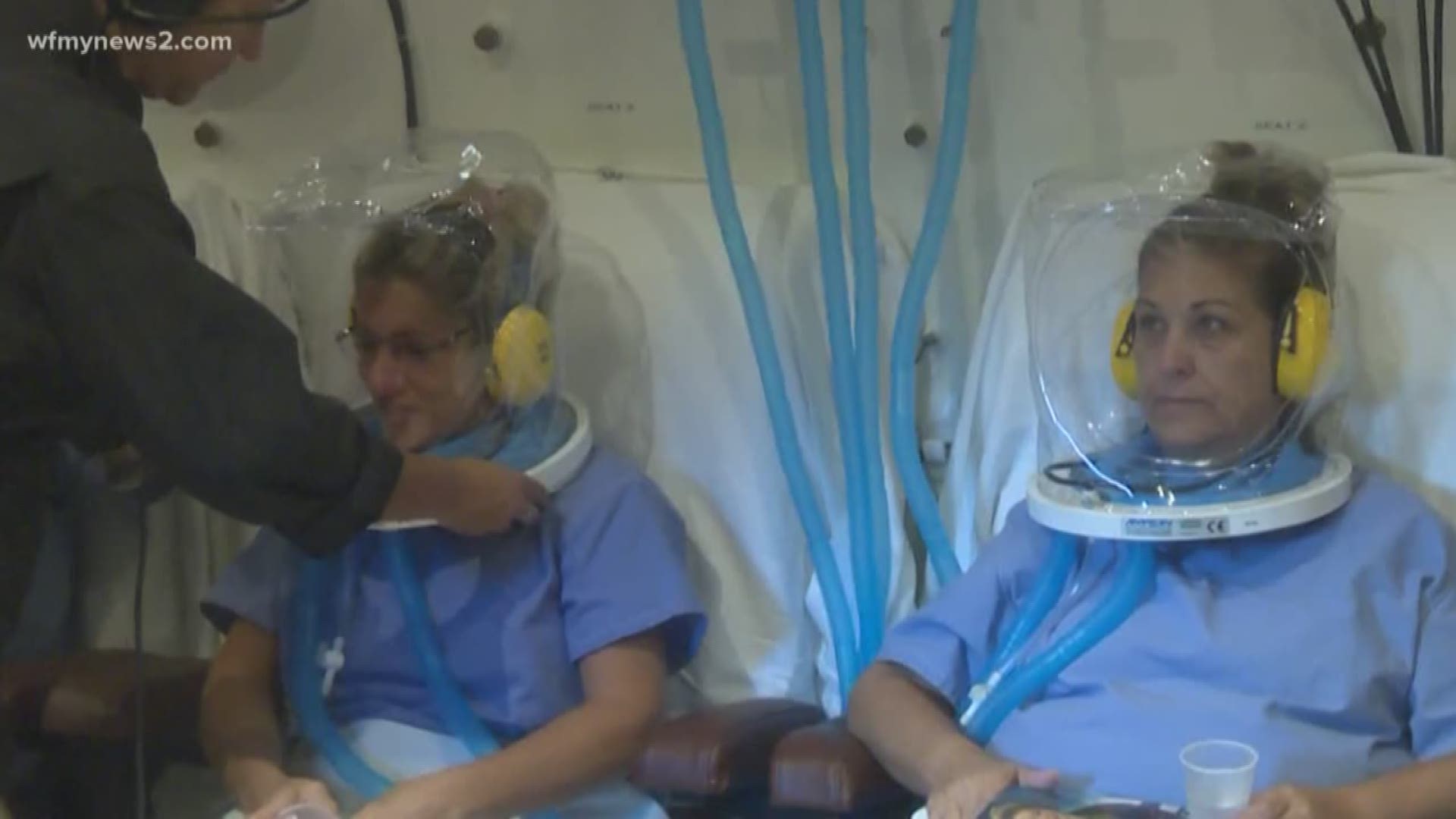GREENSBORO, N.C. — Hearing loss can be a frightening thing for people. Most of us believe that once you lose hearing it's gone for good.
And that's not entirely untrue. Losing hearing because of aging is largely irreversible. But not all hearing loss problems are. And here are some things you need to consider if you or a loved one are having trouble hearing.
EARWAX
According to the American Academy of Otolaryngology-Head and Neck Surgery, one-third of older adults have too much earwax. According to Dr. Benjamin Tweel "As people age, the wax becomes drier, making it harder for the ear to naturally expel.”
Your doctor can tell if you have an earwax blockage. They can remove it with several instruments, and so can you. Try an over-the-counter wax-removal ear drop with carbamide peroxide. Brands like Debrox can be used. No matter what you do, skip the cotton swabs. They'll probably just push the wax further into your ear canal.
CLOGGED SINUSES
A stuffy nose can actually cause your eustachian tubes (the connection between your ear nose and throat) to close up. Usually, your hearing returns once your cold symptoms go away. But if it lasts more than a week or two or crops up multiple times a year see your doctor. It could be another problem like nasal polyps.
SOME OVER-THE-COUNTER MEDS
You may not realize it, but one of the side effects of certain pain relievers can be some hearing loss. Now before you sit all day with that headache, this only applies to people who use pain relievers at a high level. Using medications like acetaminophen, ibuprofen, and Naproxen at least twice a week every week were 7% - 24% more likely to develop hearing loss than those who took them less frequently. Ask your doctor about other options if you're concerned. Experts say that kind of hearing loss is reversible up to a point.
EAR INFECTIONS
We're familiar with ear infections in children. But if you smoke or have allergies you may see some middle and outer ear infections. Experts say both of those things can irritate the eustachian tubes and keep fluid from draining. That fluid gets behind the eardrum which can breach viruses and bacteria and now you have an ear infection on your hands. Mild middle-ear infections often resolve on their own. Check with a doctor if it doesn't.
Outer ear infections can come from excess moisture in the ear. See a doctor if they don't ease up after a week. Experts say once it clears up, rinse your ears weekly with a half white vinegar half rubbing alcohol combination to help restore your ear PH to normal levels.


